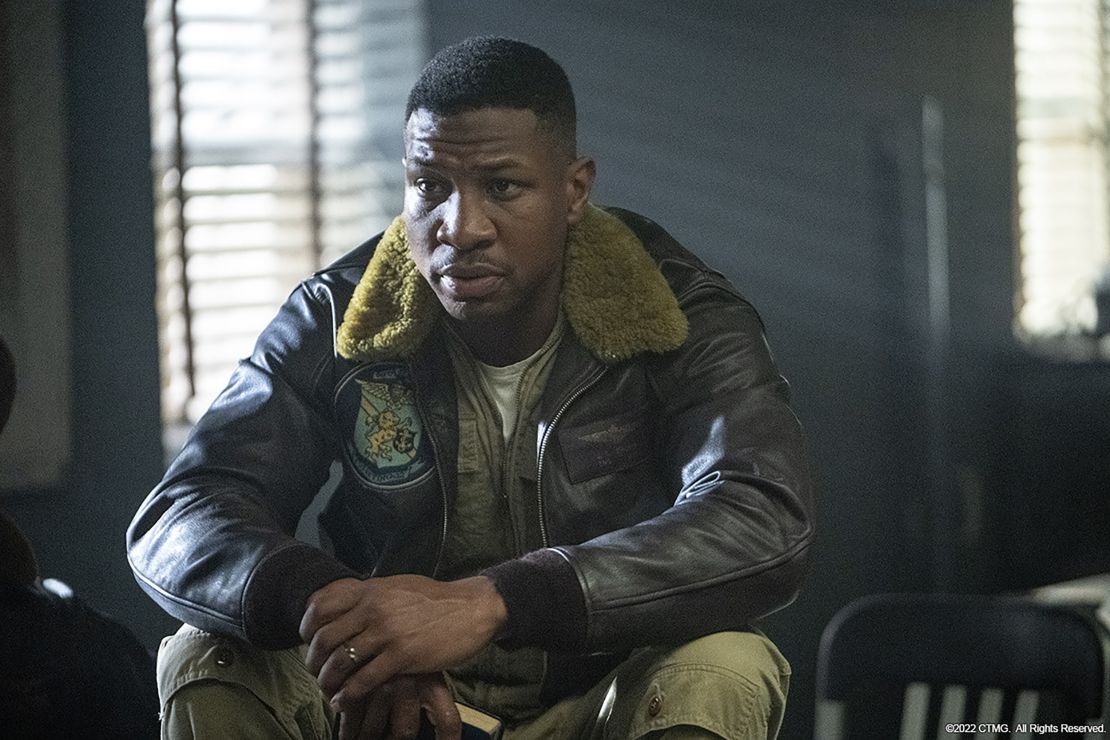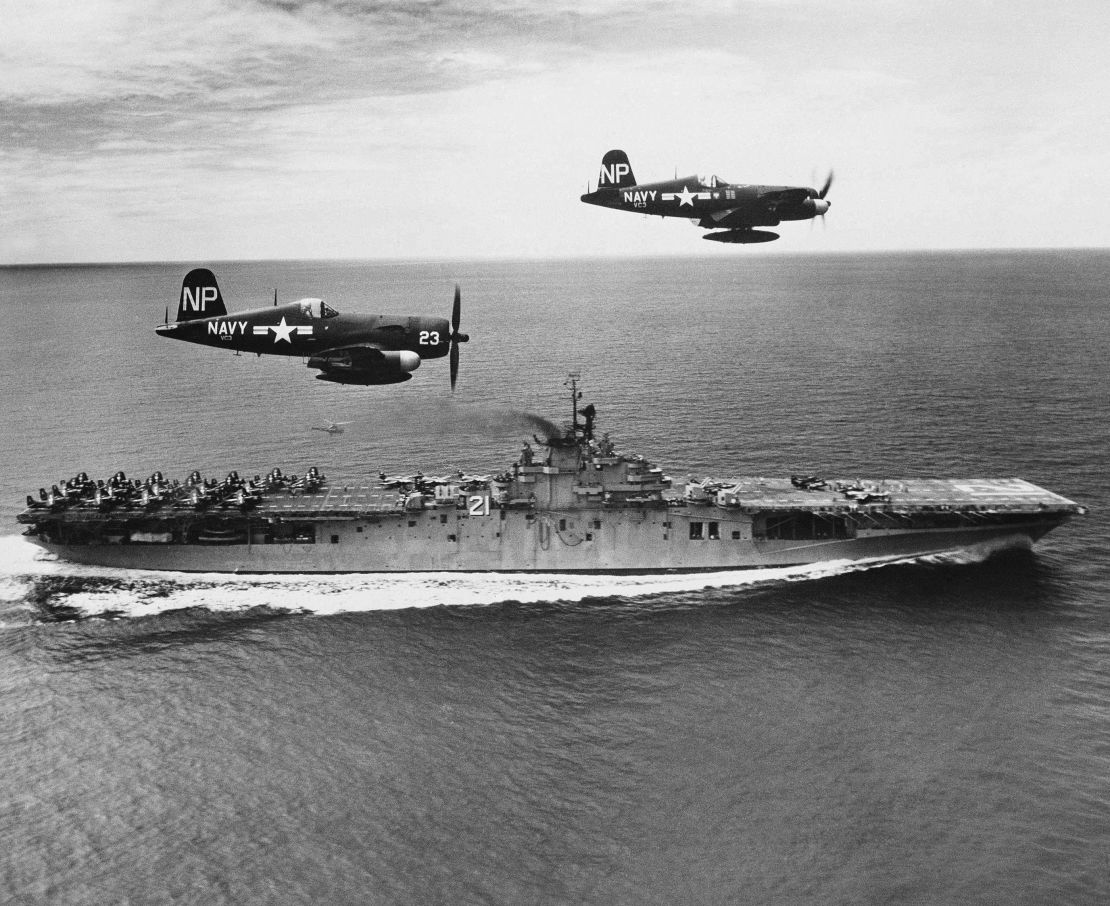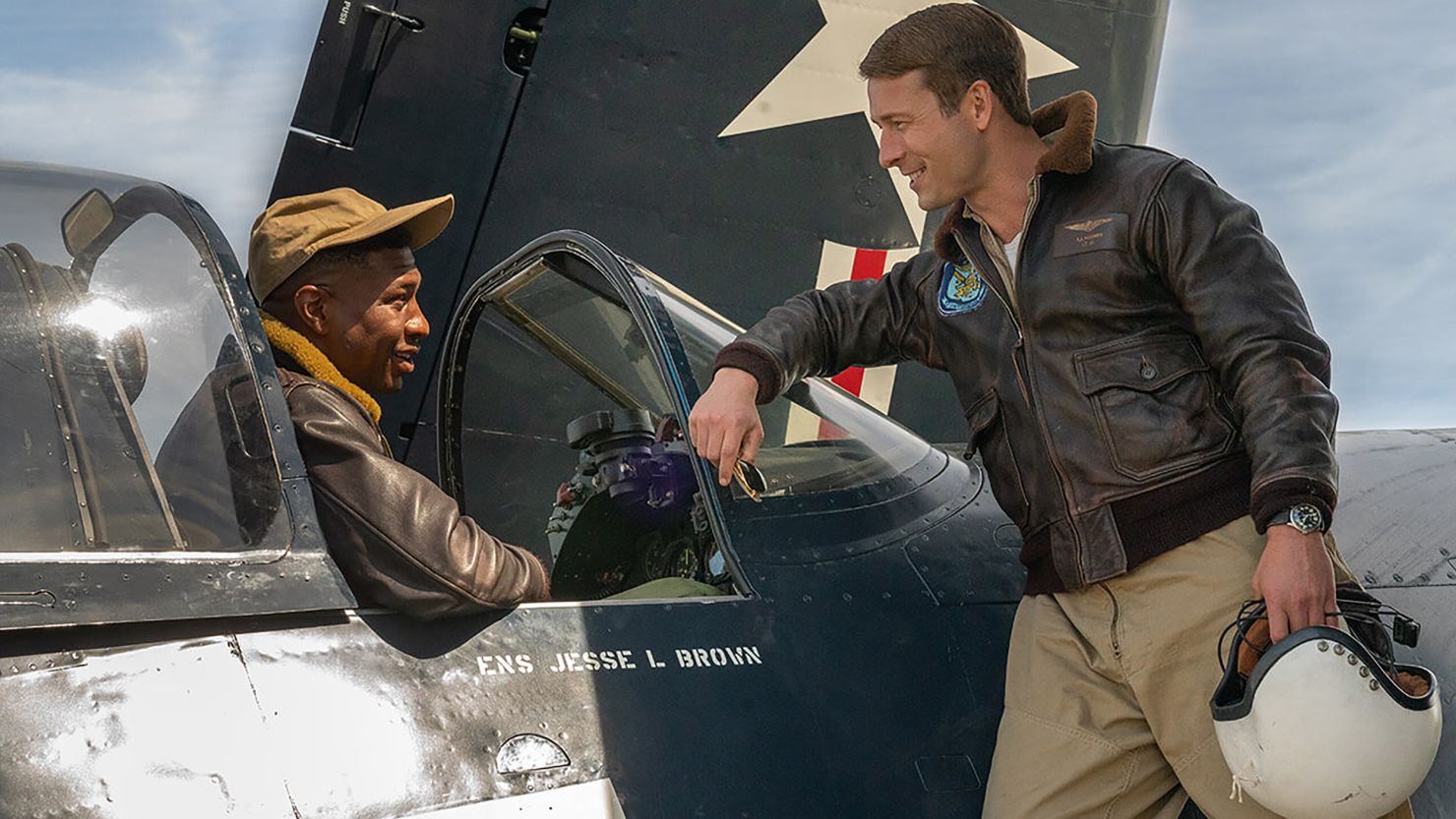Editor’s Note: Jemar Tisby, PhD is the author of “The Color of Compromise and How to Fight Racism.” He is a professor of history at Simmons College of Kentucky and regularly writes at JemarTisby.Substack.com. The views expressed here are his own. Read more opinion on CNN.
As a young man in the 1960s, my uncle joined the Air Force. Like so many before and since, flying enraptured him. The ability to transcend our natural ground-bound state and soar among the clouds in a machine slicing the air at hundreds of miles an hour thrilled his imagination.

But he never became a pilot. He never even got a chance. Not because of his ability or aptitude. Because of his skin color.
Even though there had already been some Black pilots such as the famed Tuskegee Airmen, becoming a Black pilot in the Air Force at that time seemed about as realistic to my uncle as lifting your arms up like wings and hoping to achieve lift off.
I never failed to notice that my uncle, a fun-loving guy, who always had a quip on his tongue and a good time on his mind, talked about his military days with a tinge of sadness – the kind of unresolved longing that only a dream denied can cause. He died in 2019 at the age of 72.
His discharge records, which my aunt read to me after his death, indicated he attained the rank of Airman 2nd Class, and he served as a “vehicle operator/dispatcher.” There was a note that explained the civilian equivalent of his position was “chauffeur.”
‘Devotion’ and the reality of life for Black soldiers
My uncle’s story is disappointing, but not long before his military service began, there was a Black man who broke the color line in the military like a jet breaking the sound barrier. His name was Jesse L. Brown; he was the Navy’s first carrier aviator and fought in the Korean War. The Sony Pictures film, “Devotion,” which premieres November 23, shows part of his life story.
Adapted from the book of the same name by Adam Makos, “Devotion” makes known the true story of Brown – a little known and underappreciated Black pioneer, portrayed in the film by the increasingly ubiquitous and accomplished actor, Jonathan Majors. It also features his relationship with his wingman, Tom Hudner, who is White and played by actor Glenn Powell.
Unlike many similar films, “Devotion” doesn’t depict Brown’s long and arduous journey to becoming a pilot. When we meet him in the movie, he has already achieved his dream of becoming a naval aviator.
Still, “Devotion” shows the numerous indignities Black soldiers faced, even after they achieved the elite status of pilot. For Black people, being a “first” is an achievement, but getting in is often an entry to even greater challenges.

In the movie, Brown engages in a chilling ritual just before the many times he climbs into a plane. Without going into detail and spoiling the movie, Brown replays the trauma of his racist experiences to himself and, in so doing, strips them of their power to sap his confidence in the cockpit. This practice also gives him the fortitude to deflect ongoing attacks on his identity with poise and equanimity.
The film also portrays the sacrifices endured by Brown’s wife and young child. Every military family faces loneliness and anxiety as they send their family members off to duty. Not every military family, however, must remind their loved ones that they have just as much right to serve as any White man.
The intimate conversations between Brown and his wife, Daisy, reveal the hidden burdens of Black military families. In addition to coping with the constant possibility of her husband being killed in the line of duty, Daisy reinforces her partner’s resolve to maintain composure amid the hostile white noise of racism. These were the battles Black soldiers and their families fought on the home front even when bullets weren’t flying.
The film also focuses on the friendship that developed between Brown and his wingman, Hudner. The two could hardly have been more different –Brown, born into a poor sharecropping family in rural Mississippi and Hudner, raised in a three-story Victorian home in New England. By the time the two men meet in the Air Force, both were pilots, but their experiences in the military would never be equal.
As the two get to know each other, Hudner tries and fails and tries again to be a faithful wingman. Through a firm but calm example, Brown shows his well-meaning but naïve wingman that Black people don’t need a savior, they need solidarity.
‘Half American’ brings forward ‘unsung contributions of Black troops’
I couldn’t help thinking of my uncle while watching “Devotion.” This film’s ambitions, limitations and timing are noteworthy, because the indispensable service of Black soldiers is a topic receiving attention beyond the big screen. “Devotion” is coming to theaters shortly after the release of a groundbreaking book about Black experiences in the military. Historian Matthew Delmont wrote “Half American: The Epic Story of African Americans Fighting World War II at Home and Abroad” to bring forward “the unsung contributions of Black troops.”
In both the film and the book, Black people serve, or attempt to serve, their country and risk their lives to support American ideals overseas while being denied those ideals at home. Black soldiers during the Second World War had to engage in a Double-V campaign–“victory over fascism abroad and victory over racism at home.”
One of the stories Delmont tells in his book focuses on the 94th Engineer Battalion, an all-Black force sent to rural Arkansas for practice maneuvers. As the 200 men attempted to find recreation in nearby towns, repeated conflicts sparked by White racists led the military brass to order the Black troops to camp further away from town.
On the hike to their new campground, a downpour began. Delmont recounts how with guns drawn, local White police ordered the Black soldiers off of the road and into the ditch beside it. The soldiers had to complete their trudge toward segregation in “knee-deep muddy water.”

The particular instances of racism Black soldiers faced only punctuated the long run-on sentence of racism that persisted in their daily lives in the military. Black soldiers were typically relegated to non-combat roles, especially working in the kitchen as mess men and as simple laborers in a variety of physically demanding and undesirable jobs.
Henry Stimson, Secretary of War during World War II, confidently declared, “Leadership is not imbedded in the Negro race yet and to try to make commissioned officers to lead men into battle – colored men – is to work disaster to both.”
As I think about my uncle, about Jesse Brown and the soldiers of the 94th Battalion, I’m struck not by the different military conflicts in which they were engaged but by what binds their experiences together. They were all veterans of the ceaseless fight for dignity Black people face in a nation that values them for their labor but not for their humanity.
True patriotism
“Devotion” and “Half American” are crucial offerings at this moment in our history. The work of storytellers and historians reflects the fact that exclusion of stories like Brown’s and countless other Black troops implicitly defines who counts as a true patriot.
The conventional historical record tends to valorize a sort of Captain America image of devotion to nation – a vigorous White man whose military service is not only valued but heralded.
Where, then, does that leave the Black soldier? What is the place for people such as Brown, who fought racism every day of his military service and sacrificed all for his country?
What is the place in of Black soldiers in World War II whose uniforms at home did not make them heroes but made them targets for racial terrorism?
What is the place for people like my uncle who wanted to serve his country and live out his dreams of being a pilot, only to be dismissed because of his race?
In spite of his disappointment with the military, my uncle still served faithfully for four years. I’m not sure if my uncle ever knew Brown’s story, but if he did, I hope the pilot was an inspiration to him to hold the line in the war for Black dignity.
As we again see signs of American-style fascism in politics, education and other sectors, the elusive victory over racism at home takes on renewed urgency.
True patriotism is not unquestioning devotion to one’s country. True patriotism demonstrates devotion by relentlessly demanding one’s country live up to its stated ideals. In this sense, Black soldiers have been some of the most devoted, if unheralded, patriots this nation has ever seen.



